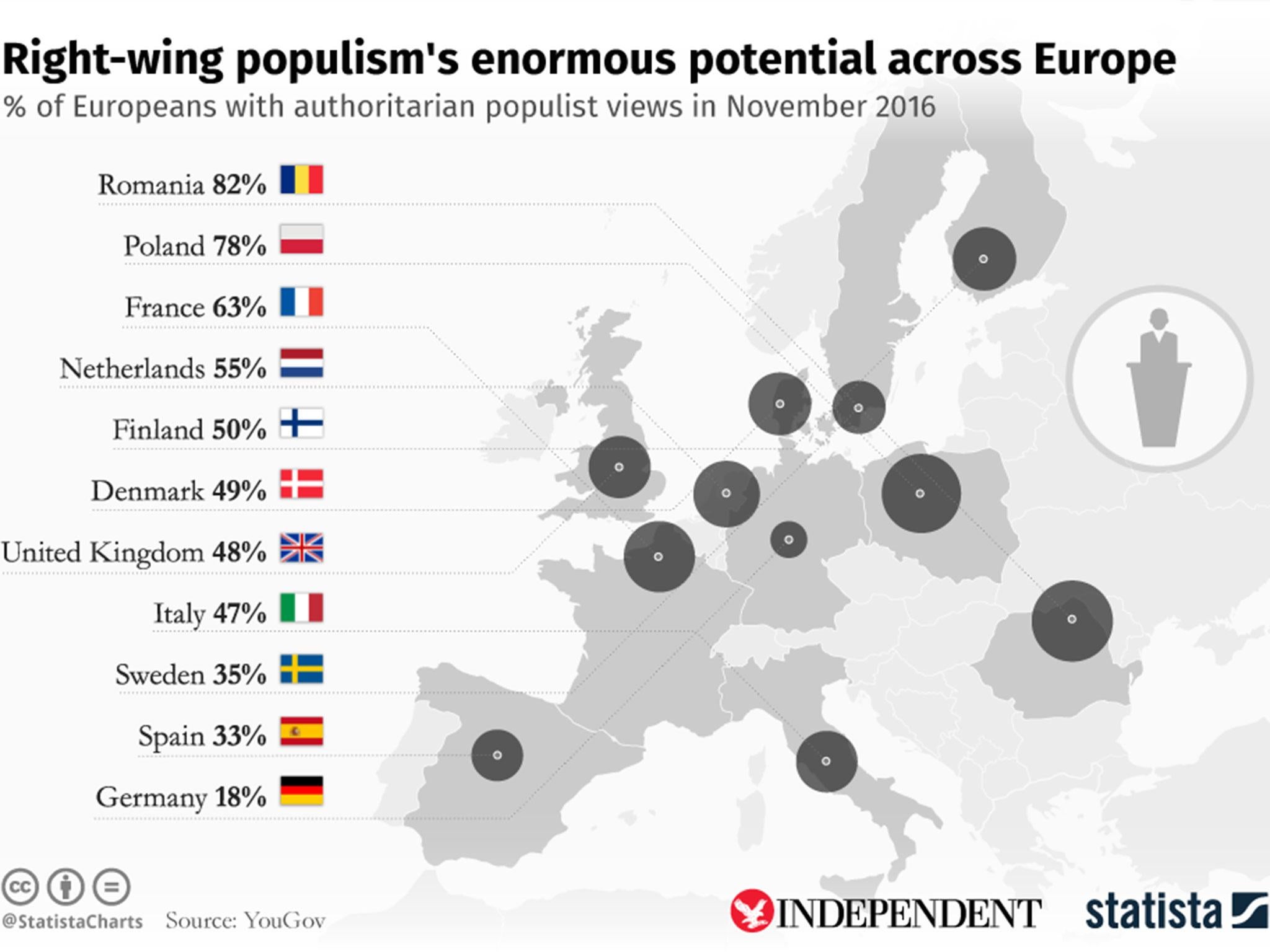'Authoritarian populism' behind Donald Trump's victory and Brexit becoming driving force in European politics
YouGov research finds anti-immigration ideology could be 'political phenomenon of next decade'

Your support helps us to tell the story
From reproductive rights to climate change to Big Tech, The Independent is on the ground when the story is developing. Whether it's investigating the financials of Elon Musk's pro-Trump PAC or producing our latest documentary, 'The A Word', which shines a light on the American women fighting for reproductive rights, we know how important it is to parse out the facts from the messaging.
At such a critical moment in US history, we need reporters on the ground. Your donation allows us to keep sending journalists to speak to both sides of the story.
The Independent is trusted by Americans across the entire political spectrum. And unlike many other quality news outlets, we choose not to lock Americans out of our reporting and analysis with paywalls. We believe quality journalism should be available to everyone, paid for by those who can afford it.
Your support makes all the difference.Donald Trump’s election victory, Brexit and the rise of former fringe parties like Ukip and France’s Front National are part of a political phenomenon that could define the next decade, according to new research.
Polling by YouGov found “authoritarian populism” was a force driving many voters across Europe and the US, united by issues including opposition to immigration, defence policy and cynicism over human rights.
Groups sharing the ideology include Ukip, the Front National, Alternative für Deutschland and the US’ new President-elect’s campaign, researchers said, calling them “branches of the same tree”.

Of 12 European countries ranked in a chart created for The Independent by Statista, five saw more than half of respondents identify with what has been classified as authoritarian populist views, YouGov said.
The figure stood at 48 per cent in the UK, where the movement is judged to be best represented by the Conservatives and Ukip.
Voters supporting authoritarian populism were broadly older and with less access to higher education, while opponents on the liberal left and centre-right were more likely to be younger and have attended university.
YouGov found 82 per cent of voters held the views in Romania, while the figure stood at zero in Lithuania and under a fifth in Germany, as divides shift from traditional left vs right to those for and against the perceived "establishment".
Researchers said the implications for elections across Europe could be “huge” as Marine Le Pen continues her contention for the French presidency and the AfD gains support ahead of Germany’s Bundestag elections next year.
“Whilst in each of the twelve countries some variation of the ‘liberal left’ currently constitutes the largest single political bloc, in seven countries the combined AP voter groups represent a greater potential electoral force,” YouGov said.
“Should a politician or party be able to find a way to unite significant numbers of AP voters under their banner, they will be able to issue a serious challenge to the established political order.
“Ultimately, there is a very real chance that the rise of authoritarian populism could be the defining political phenomenon of the next decade, and not just in Europe, but across developed democracies.”
The term “authoritarian populism” was first used in the 1980s by academics analysing the politics of Ronald Reagan and Margaret Thatcher, finding they shared a core set of attitudes including cynicism over human rights, anti-immigration and a strong emphasis on defence.
Join our commenting forum
Join thought-provoking conversations, follow other Independent readers and see their replies
Comments